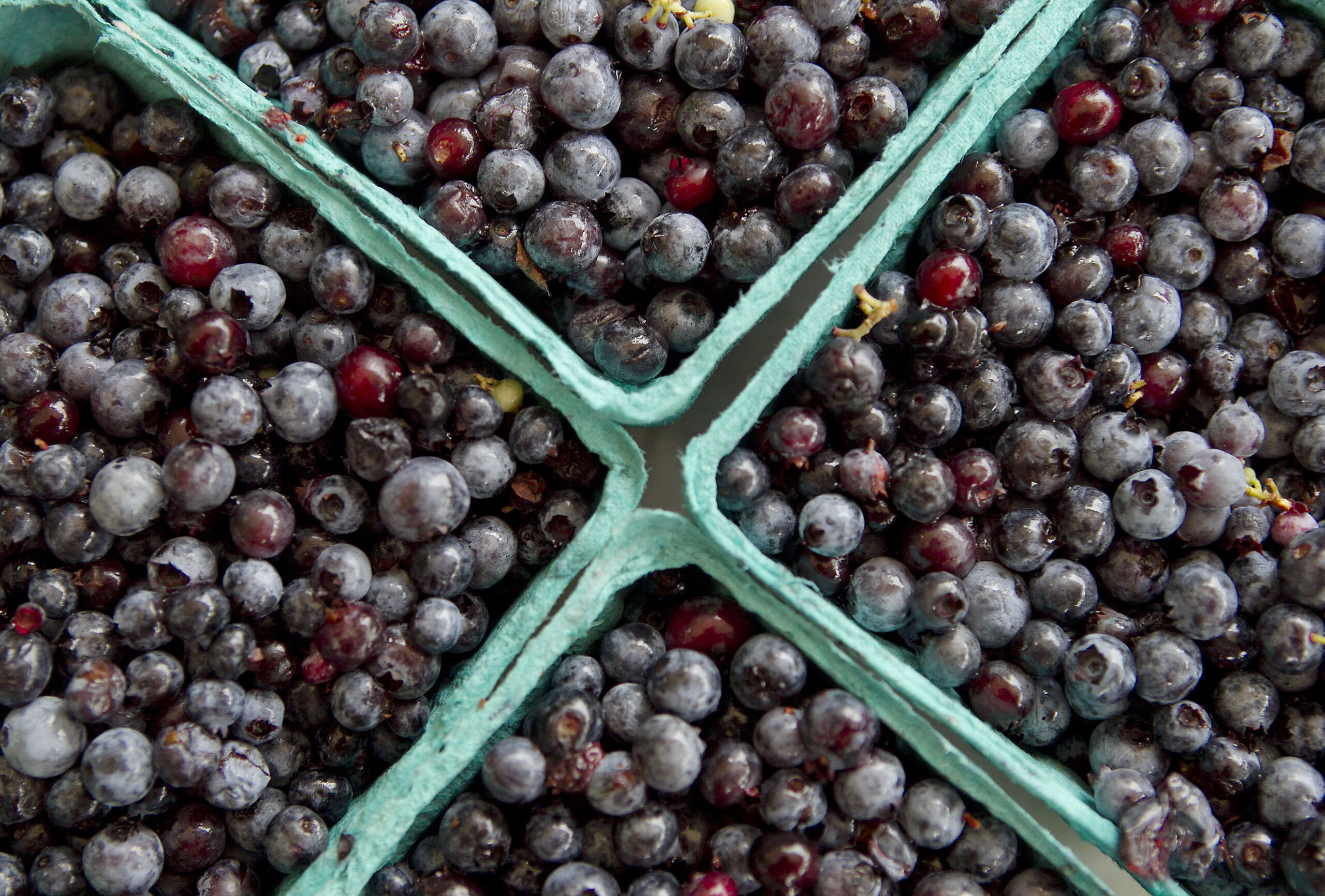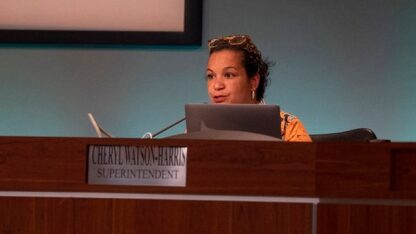Georgia’s Blueberry Farmers Seek Better NAFTA Deal

Georgia blueberry farmers say they’re looking for a better NAFTA deal.
Robert F. Bukaty / Associated Press
This week, leaders from the U.S., Mexico and Canada are meeting in Arlington, Va., to talk about reworking NAFTA.
It’s the fourth round of negotiations and was extended an additional two days through Tuesday, Oct. 17 to discuss more than two dozen negotiation topics, agriculture is expected to be among them.
NAFTA
President Donald Trump has called NAFTA, the North American Free Trade Agreement, which was first enforced in 1994, “the worst trade deal ever made.” By 2008, tariffs, duties and quantitative restrictions, expect for a few agricultural products traded with Canada, were eliminated.
Charles Shapiro is president of the World Affairs Council of Atlanta, a retired State department official and former U.S. ambassador to Venezuela. He’s also a non-tenured faculty member at Georgia State University. Shapiro calls himself a “free trader.”
“[NAFTA] is out of date and it does need to be modernized, but it’s good for the United States, good for Mexico and good for Canada,” Shapiro said. “NAFTA’s a package deal. All three countries give a little bit, get a little bit. It’s a huge negotiation across the whole range of goods and services that each of the three countries exports and imports.”
Exports To Mexico
Mexico was the United States’ second largest export market for goods in 2016. Last year, the U.S. exported $18 billion worth of agricultural products to Mexico.
Shapiro said abrogating the agricultural portion of NAFTA, would mean returning to cost-prohibitive tariffs on U.S. agricultural exports to Mexico.
Southern Blueberries
NAFTA works well because countries have different climates and growing seasons so all countries involved can benefit with access to fruits and vegetables all year. But, the berry season in the South overlaps with Mexico’s berry season.
This has led to stiff competition from Mexico, which has cheaper labor and production costs. Georgia’s blueberry farmers said they’re looking for a better NAFTA deal.
Renée Allen at the University of Georgia works with blueberry farmers statewide.
“Growers are being forced to take less and less money for their crop. And the farmers are having difficulty recouping their cost, much less making a profit for their livelihood for their families,” Allen said. “I think the concern is that ultimately these types of imports during our market window, could potentially put the U.S. farmer out of business.”
She said the farmers don’t know what the solution is, but “some sort of volume control” could help the situation.
Brandon Wade is the plant manager for Alma Nursery and Berry Farms. The city of Alma in Bacon County is considered Georgia’s blueberry capital, about four hours south of Atlanta.
“I don’t think [potential tariffs on foreign berries] would be productive for the entire country necessarily,” Wade said. “It might gain us a little bit in the blueberry industry, but end up losing actual dollars to our economy.”
Wade is also president of the Georgia Blueberry Growers Association. He said the group does not yet have an official position on the NAFTA negotiations.
Negotiations
Farmers don’t agree on exactly whether to impose tariffs or enforce quotas to prevent what they consider “illegal dumping” from Mexico.
“The hardest stuff you always keep to the last round of negotiations,” Shapiro said. “In each of these rounds, some stuff is resolved and the hardest stuff doesn’t get resolved ’til the very end. So it’s very difficult early on in negotiations.”
He noted the Trans-Pacific Partnership (TPP) trade deal, which had its final negotiation meeting in Atlanta in October 2015, involved 15 meetings. The TPP involves 12 countries that border the Pacific Ocean. The United States withdrew from the TPP in January.








